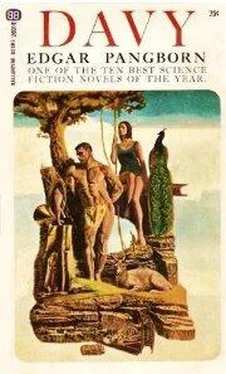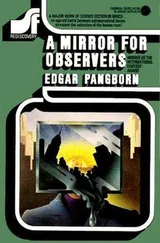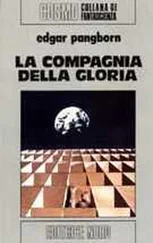We drifted south from Nuber by slow stages. People of the Kingstone district seldom traveled in the south of Katskil. Anywhere in the country, however, there was some slight risk for Sam. He didn’t work with the medicine pitch, but just lent a hand at whatever was needed — muleskinning, scene-shifting, helping Grafton at his harnessmaking — and kept more or less out of sight of the public.
He particularly enjoyed being what Mam Laura called a “noise off” during her fortune-telling. She always had a small tent set up for it, with a canvas partition across the middle. In the front there’d be nothing but one little table and two chairs — no crystal or incense or such-like props. But she did love a good noise off. In the back half of the tent she kept a few gidgets — a cowbell, a drum with a crack in it that was no use to Stud Dabney any more but could still make a dismal sort of noise like a bull’s intestines rumbling somewhere on a misty night. At cue words, Sam would work these objects for her, or knock something over, or sometimes heave a long horrible sigh that Mam Laura warned him not to use too often because she could hardly stand it herself. He’d build up the racket little by little until Mam Laura would holler “Hoot-mon-salaam-aleikum!” or “Peace, troubled spirit!” or something else soothing, and then quit for a while. The yuck could never be quite sure that the canvas panel wouldn’t suddenly rise up and reveal some fearful apparition such as Asmodeus or a four-horned Giasticutus or his mother-in-law. Sam claimed that his job was good for him because it like kept him in touch with the arts but without any real Goddamn responsibility. He also said now and then that he was getting old.
It should not have been true, since he was only in the fifties. But in some ways I suppose it was true.
Southern Katskil is altogether unlike the bustling northern part. A ghostly, evasive land — the big rich farms are in the central part, not the real south. Small sandy roads twist through the pine barrens as if in blind pursuit of a goal you’ll never learn. If such a road comes to an apparent end, you feel sure that you must have missed some turnoff that was the road’s real continuation. In many places, inland as well as close to the fine white beaches, it is deep wilderness instead of the curious pines, wilderness as profound as the semitropical jungles of Penn, which I have also glimpsed. They say that bands of the flap-eared apes have sometimes been encountered in the jungle regions of southern Katskil — the same kind that are well known in Penn, shy, wild, a little dangerous.
There are no cities in southern Katskil, unless you want to give that name to the dull harbor of Vyland in the extreme south, on the immensity of Delaware Bay; it hardly deserves it, and is hardly worth the effort it takes to reach it on the long road through the barrens and jungle and enormous swamps. Vyland was once a pirate town, headquarters of a fleet that ravaged Penn’s coastal commerce with the northern nations. Katskil and Penn for once agreed on something, joining forces to clean out the raiders, as we had to do in Nuin with the Cod Islands lot. The Vyland pirates didn’t have the vinegar and cussedness of the Cod Islanders, however, nor any islands for refuge; it was a massacre. Today, Vyland has nothing to show but fisheries and monasteries, which smell alike.
No proper cities there in the south of Katskil, but a good many small vifiages, widely separated, heavily stockaded, their people often showing a dreary distrust of strangers. We seldom had a really good pitch. I have an impression there was a good deal of hookworm and malaria, possibly other sorry conditions that held the people down through no fault of their own.
One village in that region I am compelled to remember. We came to it in the fall of 319, when we were already moving northwest with the idea of crossing over into Penn near their fine city of Filadeffia. It was late afternoon; the front and rear gates of the village were shut but not locked. We rolled down the road with our customary joyous commotion, playing and singing “I’ll Go No More A-Roving,” a song that usually won us a better welcome than any other. When we were drawn up before the still closed and desolate gates, I blew my golden horn to make it plainer than ever that we came in way of friendship. But no one opened to us. It made Pa angry — well, the whole summer in southern Katskil had done that. “Why,” he said — “bugger me blind, we’ll be going in anyhow, and ask them nicely why they won’t open.”
Poor things, they couldn’t — the few who were there in the village were dead, and had been for months. The houses were starting to fall apart, just a little-holes in the thatched roofs where squirrels had gone through, here and there a door fallen off its hinges because the wind had banged it once too often. We went into all the twenty-odd dwellings, finding the skeletons picked clean by the carrion ants and scavenger beetles — only a few, about a dozen in all I guess; all perfectly inoffensive and dry. Most of them lay on the cord or wicker cots that they use for beds in that country; two had remnants of white hair. It was peaceful. Since the dead were all indoors, and the village gates closed against wolves and dogs, the ants and beetles had done nearly all the housekeeping; we were puzzled to notice how little the bones had been disturbed by mice and rats. Pa Rumley said that rats die from the lumpy plague, same as human beings, which I hadn’t known at that time. But I had a back-of-the-neck feeling — we all had it, I think — that this could be some other kind of plague.
One man (or woman) had been left behind on the village gallows. The crows and vultures had dealt with that; the bones lay in a meek pile below the still dangling rope. At any rate the criminal was now on a level with the respectable citizens who had been hopelessly sick, or too old to travel perhaps. One body still sat in a rocking chair by a closed window, a woman by the shape of the pelvis, probably an old woman; dry cartilage still held together the spine and legs and one arm. I felt some lessening of the horror as I compelled myself to look on her tranquillity. In the world that the people of Old Time left to us, these things have happened often enough, and will again.
Penn is a land of good artisans, farmers, artists, philosophers, poets, wealth, laziness — and why shouldn’t they be lazy, with nature lenient as it is, and all that smell of grape and magnolia? In some parts of the land the climate is over-sweet; the heat after a time seems to come, and mildly, from inside you, although still a gift of the sun. That illusion is strongest in the eastern part of the country, where the sea breeze drives fresh off great Delaware Bay. Filadelfia on the Bay is a fine little city quite near Old-Time ruins that are thought to be harmless — in fact they say some of the modern city is actually built over the site of the old. At Filadeffia all necessary work gets done — the streets are clean, the houses orderly — but you never see anyone, slave or free, seriously exerting himself. The citizens have much more resemblance to each other than the people of the northern countries, on the whole; maybe some of their ancestors in the Years of Confusion were exceptionally prepotent — a dark, tall people with an odd hint of Polynesian as that race appears in Old-Time pictures I have seen. I have no theory to explain that. The girls are big-bodied; deliciously lovely in youth, they stay handsome when in the thirties they begin to look old; and they are kind.
Nearly everyone in Penn seems to be kind, within the limits allowed by religion and politics. Their politics consists of defending the border, which is the Delaware River, and keeping even or ahead of the game in commercial horse-trading. This they manage with a fine fleet of small river craft and a neat army which has never been defeated and has never invaded foreign soil. Trade is assisted by a corps of ambassadors in foreign courts who must be about the most trustworthy and likable liars at large — Dion says so, and my own observation, from the time Nickie and I were with him in Nuin politics up to here, bears it out.
Читать дальше












